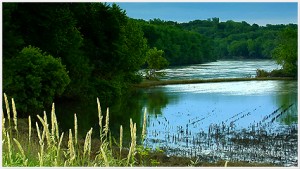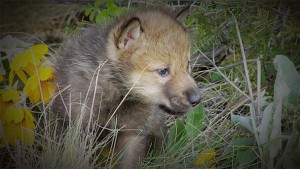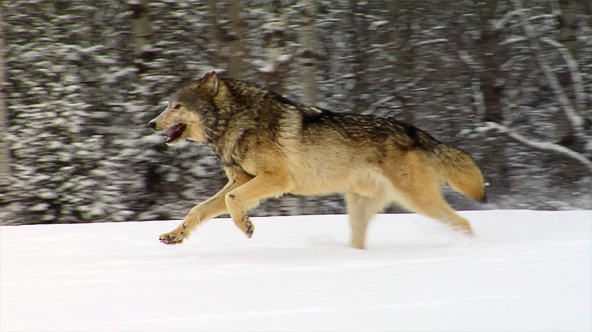Whether the results of the human population are intentional or not, the fact remains that nature and wildlife is under attack. Much of global population has lost sight of how important the natural world is to the quality of life for people and the sustainability of the world that we inhabit. There are many signs that the behavior of man is causing great damage to the planet and if allowed to continue, the world could become a much different place for all life on Earth to exist.
The root cause of this colossal problem is the unnecessary consumption enjoyed by man. When things are taken from the world that cannot easily be replaced, the world suffers a great loss. Much of what is taken to benefit people is at great expense to the other animals we share this planet with. For example, when people take on massive building projects that require newly produced materials, wildlife experiences habitat loss. Through deforestation, civilization is constructing a world for man to live in, while taking away the environment that animals depend upon.
 Filmmakers are the first line of defense in this war for the world’s resources. They have the daunting task of showing the damage being created to the rest of the world. Without these efforts, people would never become aware of the effects of human behavior. Hearing or reading about the possible effects of some action is not as powerful as seeing the actual damage. Discussions without evidence and images do little to improve this situation.
Filmmakers are the first line of defense in this war for the world’s resources. They have the daunting task of showing the damage being created to the rest of the world. Without these efforts, people would never become aware of the effects of human behavior. Hearing or reading about the possible effects of some action is not as powerful as seeing the actual damage. Discussions without evidence and images do little to improve this situation.
Sometimes the damage done to wildlife comes in the form of a direct assault on the animals themselves. Poaching is the illegal killing of large numbers of animals for some unnecessary luxury. Taking buffalo for their skins or elephants for their tusk and leaving the remaining parts of these animals to waste is the cost of this action. Other times the assault on animals comes from accidental events. Oil spills that occur in the process of acquiring and transporting resources people need to maintain their quality of life, have devastating effects on the animal populations in these areas.
When someone is able to film nature following one of these catastrophic events, people are able to see the damage as it happened. Other larger more complex situations may not be as easy to record. Climate change cannot be displayed in any one event. This requires that the symptoms that lead us to the greater problem be gathered together. This makes a puzzle that must be constructed one piece at a time until the entire picture becomes visible.
All of these examples combined with the endless lists of humans destructive behaviors, display a picture of what irresponsible action looks like. Much of the luxury enjoyed by civilization directly affects nature and wildlife. Some of these results are easily visible and require little debate as to the cause and possible solution. Others are much more complicated and a different approach is required. Finding a way to responsibly deal with human wants and the planets needs is the challenge for all people.





When Congress Plays God, Wolves Lose
The Endangered Species list has always been monitored and managed by an apolitical scientific group. This changed for the first time in history in April 2011 when the United States Congress removed the wolf from the Endangered Species list. The proposal to declare the wolf as not at risk was included in a section of the infamous budget-balancing act, which has made more than a few people scratch their heads: what do endangered species have to do with sound financial planning? The deed was done by Senators from Idaho and Montana where commercial hunting is popular. Coincidentally, the Montana Senator is up for re-election.
The Endangered Species Act of 1973 was made into law to protect species from extinction because of “…economic growth and development untempered by adequate concern and conservation.” Yet that is exactly what wolves have fallen prey to. The decision to remove them from the Endangered Species list (or rather, to allow commercial hunting of them) was not made by scientists, wildlife experts, or conservationists, it was made by politicians, who were very conveniently benefited by the decision. Furthermore, it was not openly proposed and discussed, but rather hidden away in a bill so important that those involved would have no choice but to pass it. This is clearly a case of political maneuvering. Everyone has seen the movie where, to save the sinking ship, the captain must seal off the leaking rooms, dooming the men inside. To do a greater good, a wrong must be done as well. The only reason it was done in this situation is that Senator Jon Tester and Representative Mike Simpson forced it to be so. If they had legitimate evidence of the species’ safety from nature and wildlife experts, they could have presented the unprecedented idea to Congress (remember that Congress has never, in 235 years, taken authority to remove an animal from protected capacity) in its own bill, instead of squirreling it away in the Congressional Budget Act which had to be passed immediately to avoid a government shutdown.
Furthermore, it was not openly proposed and discussed, but rather hidden away in a bill so important that those involved would have no choice but to pass it. This is clearly a case of political maneuvering. Everyone has seen the movie where, to save the sinking ship, the captain must seal off the leaking rooms, dooming the men inside. To do a greater good, a wrong must be done as well. The only reason it was done in this situation is that Senator Jon Tester and Representative Mike Simpson forced it to be so. If they had legitimate evidence of the species’ safety from nature and wildlife experts, they could have presented the unprecedented idea to Congress (remember that Congress has never, in 235 years, taken authority to remove an animal from protected capacity) in its own bill, instead of squirreling it away in the Congressional Budget Act which had to be passed immediately to avoid a government shutdown.
When politics are allowed to influence the treatment of ecosystems, the natural world is in serious danger. The good of species and life forms is no longer dictated by conservation measures, but by the agenda of individuals. We may as well add the planet to the Endangered Species List, although it would probably just be removed by some Senator looking for votes.
